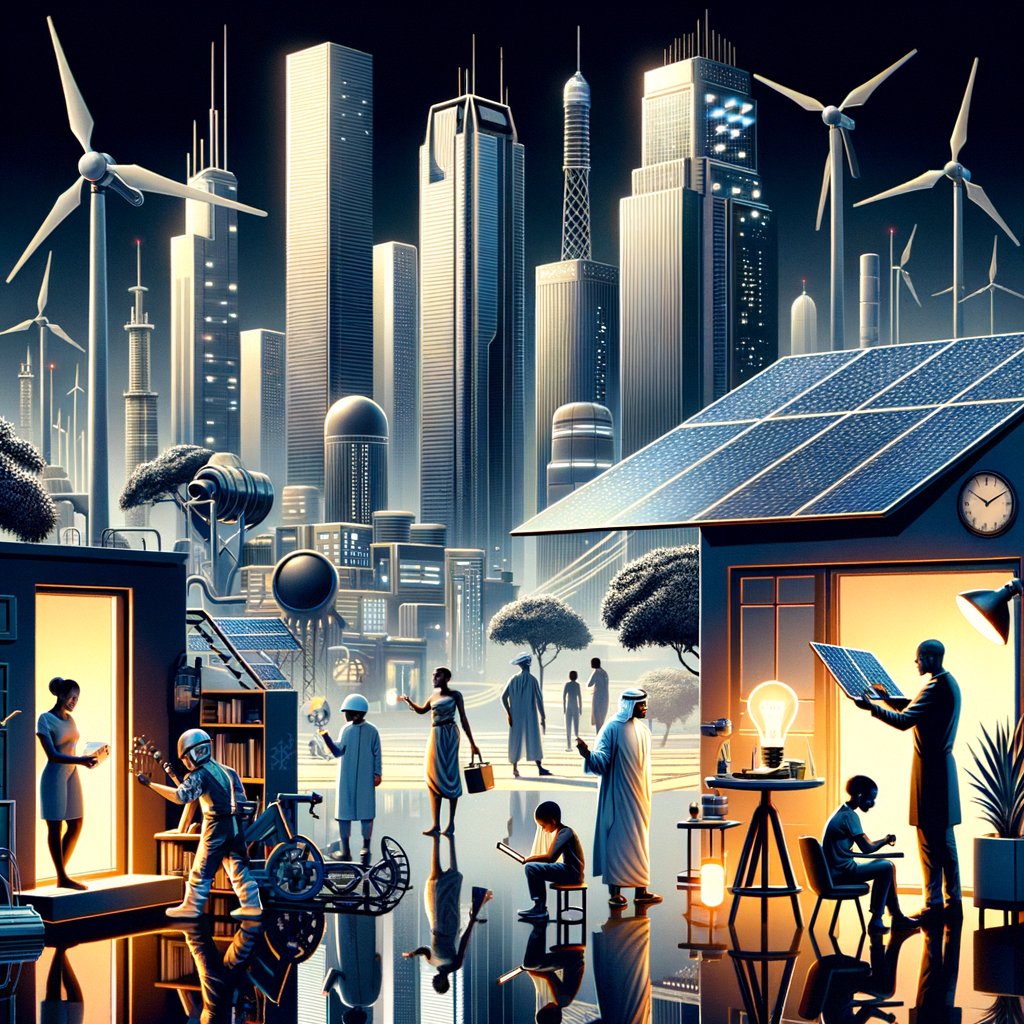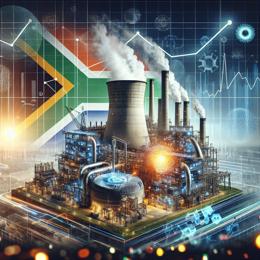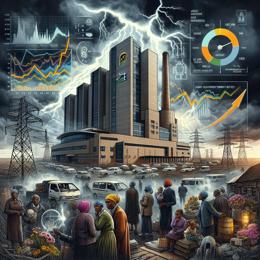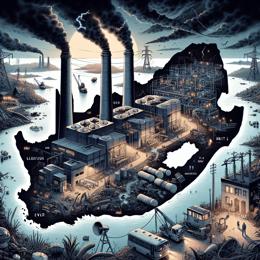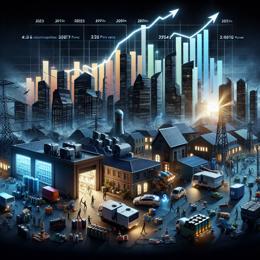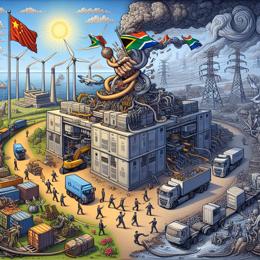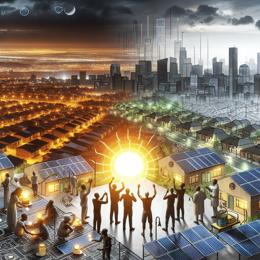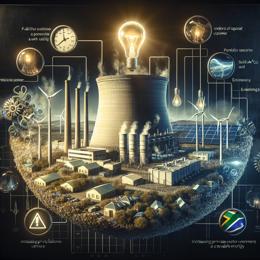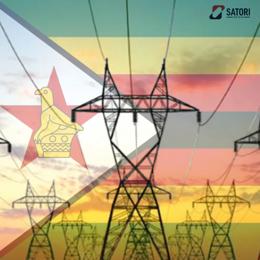Image created by AI
Powerless Potential: The Stark Reality of Africa’s Energy Crisis
In Africa, an energy crisis of dire proportions looms large, casting a shadow over the continent's aspirations for a prosperous future reminiscent of the Afro-futurist Wakanda. With 571 million individuals bereft of electricity—accounting for an astonishing 80% of the global population without power—the situation threatens to derail economic advancement and deepen the already significant development chasm that separates Africa from the rest of the world.
Notwithstanding the fictional affluence and technological prowess that Wakanda from the Marvel's Black Panther series epitomizes, Africa's reality is marred by an energy scarcity that could be centuries behind the West's power consumption rates. Middle-income nations like India and Indonesia consume about 30 gigajoules of energy per capita each year, which pales in comparison to African nations, where individuals on average live on a mere 5 gigajoules—eclipsed even by the continent's own oil-rich and coal-powered states.
Wakanda’s Afro-Futurist dream is more remote than ever, writes @davidfickling. Economic growth is powered by energy, and Africa just doesn’t have enough of it https://t.co/JuZaE0JB1a
— Bloomberg Africa (@BloombergAfrica) October 20, 2024
This crisis is not just about numbers; it's about human lives and the continent's capacity to grow and thrive. Without electricity, there is no industrial growth, no technological advancements, and diminished opportunities for the education and empowerment of people. The electricity deficit is not merely a technical challenge; it's an existential threat to Africa's future.
Despite the growing global emphasis on renewable energy, Africa faces towering financial and regulatory hurdles in harnessing solar, wind, geothermal, and hydroelectric power sources. High tariffs and prohibitive local content requirements act as formidable roadblocks, stifling the adoption of green technologies that could offer a sustainable and long-term solution to the energy shortfall.
Yet, all hope is not lost. The continent's battle for power is gaining attention, and calls for urgent action from international institutions like the International Monetary Fund (IMF) are growing louder. The IMF, with its significant financial and economic influence, is positioned to catalyze Africa's energy transformation by promoting investment in renewable infrastructures, leveraging its quasi-currency for funding, and supporting regulatory reforms to create a conducive environment for green energy adoption.
The world must realize that Africa's energy insufficiency is an issue that transcends national borders. An electrified Africa is not just beneficial for its inhabitants but is essential for global economic balance and environmental sustainability. The continent that cradled humanity now clamors for the means to fuel its development, and it cannot be left in the dark.
The Afro-futurist dream of a Wakanda-like Africa might be remote, but with concerted international effort and strategic investments in renewable resources, the dream can shift closer to reality, illuminating a path for an empowered and thriving African continent.
